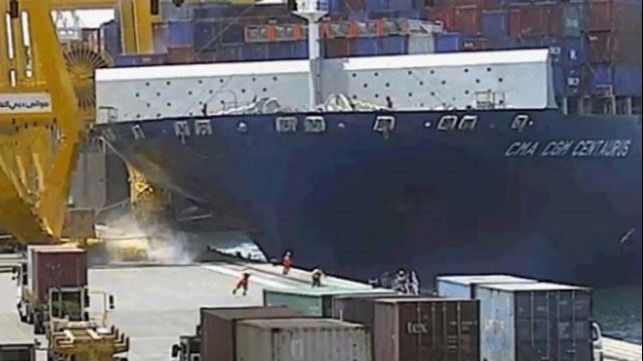Over a Thousand U.K. Accidents Reported in 2018

The U.K. Marine Accident Investigation Branch (MAIB) has released its 2018 Annual Report, highlighting that 1,227 accidents were reported involving U.K. vessels or in U.K. coastal waters.
There were 744 accidents involving 798 commercial vessels that involved actual or potential casualties to vessels. 27 of the accidents involved only non-commercial vessels, 456 were occupational accidents that did not involve any actual or potential casualty to a vessel.
For the ninth successive year there were no U.K. merchant vessels of over 100gt lost. The overall accident rate for U.K. merchant vessels over 100gt continues to fall at 64 per 1000 vessels, down from 75 per 1000 vessels in 2017. Additionally, there was no loss of life to crew or passengers due to accidents on board U.K. merchant vessels over 100gt during 2018.
There were two reported deaths of crew working on foreign flag vessels while in U.K. ports: one fell through an open hatch cover, the other was working under an unsecured hatch cover that fell on him.
The MAIB report voices disappointment that some of its recommendations have not been taken up. For example, the accident involving CMA CGM Centaurus making heavy contact with the quay and two shore cranes at the Port of Jebel Ali. The safety issues identified were ineffective master/pilot exchange, no detailed pilotage plan, commercial pressures and ineffective bridge resource management.
Recommendations were made to the International Chamber of Shipping (ICS), the International Maritime Pilots’ Association (IMPA) and the International Harbour Masters’ Association (IHMA) that they conduct a joint campaign of information for ships’ bridge teams, pilots and port authorities designed to:
• Promote the benefits of adhering to effective bridge resource management procedures during acts of pilotage.
• Endorse the BRM-P course as an effective means of providing pilots with the necessary skills to best utilize the resources available during acts of pilotage.
MAIB comments: “ICS, IMPA and IHMA did not agree that a joint campaign was appropriate given the circumstances of this accident. However, ICS and IMPA have agreed to review their guidance on the master/pilot relationship at the next change, with a view to removing any potential scope for ambiguity. ICS and IMPA have also agreed to circulate to their members the forthcoming IHMA guidance that will set out expectations for the conduct of pilotage in harbor authority areas.”
Eight commercial fishing vessels were lost in 2018 compared with six in 2017. MAIB Chief Inspector Captain Andrew Moll said: “In 2018, tragically, another six fishermen lost their lives: three due to their vessels capsizing; two from falling overboard; and one from a noxious atmosphere in a fish hold. Since 2010, an average of 6.44 fishermen have lost their lives each year, and the figures bear out that the fatality rate has been fairly steady.
“When considered against deaths on the roads, these figures seem small. However, when adjusted to show deaths per 100,000 workers, the figures tell a different story. When the Health and Safety Executive (HSE) posted its figures for the most dangerous profession in the UK, top of the list was the recycling industry. The HSE’s figures did not include commercial fishing. Had they done so, commercial fishing would have been shown to be the most dangerous occupation, by a factor of 10.
“There is no silver bullet that will alter this picture, but small fishing vessel stability and lifejacket wear stand out as areas where improvements could significantly enhance safety.”
The report is available here.
